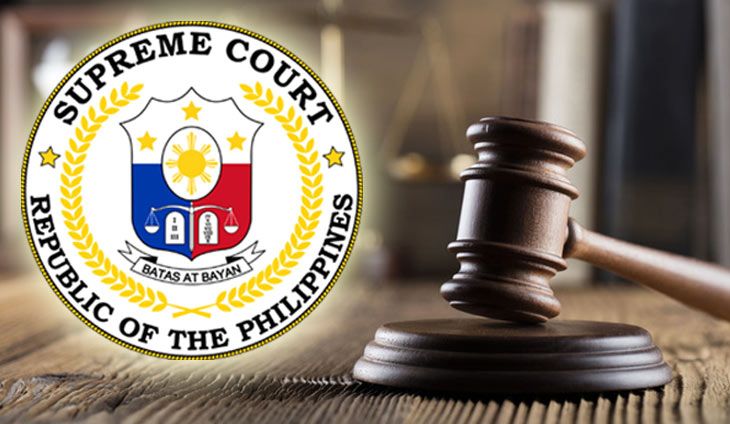SC ruling excluding Sulu from BARMM draws mixed reactions from officials
DAVAO CITY – The Supreme Court ruling excluding Sulu province from the Bangsamoro Autonomous Region in Muslim Mindanao drew mixed reactions from some key government officials in the region.

Key leaders of the Bangsamoro government remain mum on the matter as of posting time.
The Supreme Court on September 9 unanimously upheld the constitutionality of the Bangsamoro Organic Law (BOL) but ruled that Sulu is not part of BARMM after the province voted against the law’s ratification in 2019.
According to the Supreme Court, the decision is immediately executory.
Former Autonomous Region in Muslim Mindanao Governor now Basilan Rep. Mujiv Hataman cited the High Court’s decision to uphold the constitutionality of the BOL but said the exclusion of Sulu is a big blow to the government’s effort to unify the once fragmented region.
Hataman emphasized the contributions of Sulu in the Muslim’s fight for freedom.
"Ang kuwento ng mga magigiting na mandirigma ng Sulu ay bahagi ng naratiba ng Bangsamoro. Maraming bayani at mujahideen mula sa Moro National Liberation Front ay galing sa lalawigan ito," Hataman said in a statement.
(Stories of great Sulu warriors are part of the narrative of the Bangsamoro. Many heroes and mujahideen from the Moro National Liberation Front are from the province)
He said the exclusion of Sulu from the Bangsamoro government is an omission of the people’s contributions to historical narratives of the region. “Bangsamoro is incomplete without Sulu.”
Bangsamoro Transition Authority Deputy Parliament Speaker Omar Sema said that he has mixed emotions with the Supreme Court ruling.
“I feel mixed emotions. I am happy of the constitutionality but saddened Sulu was left in the SC pronouncement. Anyway, it appears the SC decided on the basis of their limited notions of democracy,” Sema said in a statement.
He said that ARMM was already a government unit when the 2019 plebiscite was conducted.
“Therefore, the determination of consent to change from ARMM to BARMM should be based on the entirety of the ARMM as a whole and not per component province.”
Lanao del Sur Rep. Zia Alonto Adiong recalled that the plebiscite question posed to the core areas, including Sulu, was clear: "Payag ba kayo na pagtibayin ang Batas Republika Blg. 11054 na kilala din bilang 'Organic Law for the Bangsamoro Autonomous Region in Muslim Mindanao'?"
(Do you agree to ratify Republic Act 11054 known as 'Organic Law for the Bangsamoro Autonomous Region in Muslim Mindanao'?)
Adiong said that the plebiscite was a choice for or against the BOL, which, according to him, was “a question of system change on the socio-economic and political structure of the ARMM, not a question of territorial exclusion of either one of the original five provinces which used to comprise the regional autonomous government.“
He added that Sulu has been a foundational part of the autonomous government in the region, saying that it was one of the original provinces that formed the then ARMM.
“Sulu and its people have always been central to the cause for autonomy. It was their bravery that ignited the fire that would ultimately forge the BARMM. The struggles and sacrifices of the Tausūg have laid the groundwork for the freedoms we now enjoy. Their unwavering commitment to our shared dream of autonomy and peace is deeply ingrained in the history of the Bangsamoro,” Adiong said.
With the exclusion of Sulu, BARMM will be left with the provinces of Basilan, Lanao del Sur, Maguindanao del Norte, Maguindanao del Sur, and Tawi-Tawi.
During the plebiscite, only the province of Sulu rejected the ratification of BOL after the Yes vote lost at 137,630 to the 163,526 No votes.
Sulu Gov. Sakur Tan has yet to release a statement on the decision.
In October 2018 or barely three months after it was signed into law, Tan filed a petition before the Supreme Court questioning the constitutionality of the BOL.
He was also quoted in news reports that he want Sulu to opt out of the Bangsamoro region and join the Zamboanga Peninsula region instead.
But last April, Tan was among the key political figures in BARMM who formed an alliance known as BARMM Grand Coalition (BGC), which set to challenge the Moro Islamic Liberation Front-led United Bangsamoro Justice Party (UBJP) in the first parliamentary elections in BARMM next year.
BGC endorsed Tan as the next chief minister of the Bangsamoro government.
However, Adiong, one of the political clans who forged an alliance with Tan, said the loss of Sulu leaves a deep void in the Bangsamoro homeland.
“These are political tremors that endanger the very foundation of a unified Bangsamoro. With the departure of Sulu, the remaining provinces must now ask themselves whether the door has been opened for their own departure. The cracks in this collective struggle for autonomy may undo the decades of effort that brought us to this point. We all find ourselves back in Square One,“ he said.
The Maranao lawmaker appealed to the people of Sulu and the entire region ”to remain steadfast, to remember our shared vision of peace, and continue advocating for what is best for all Bangsamoro.”